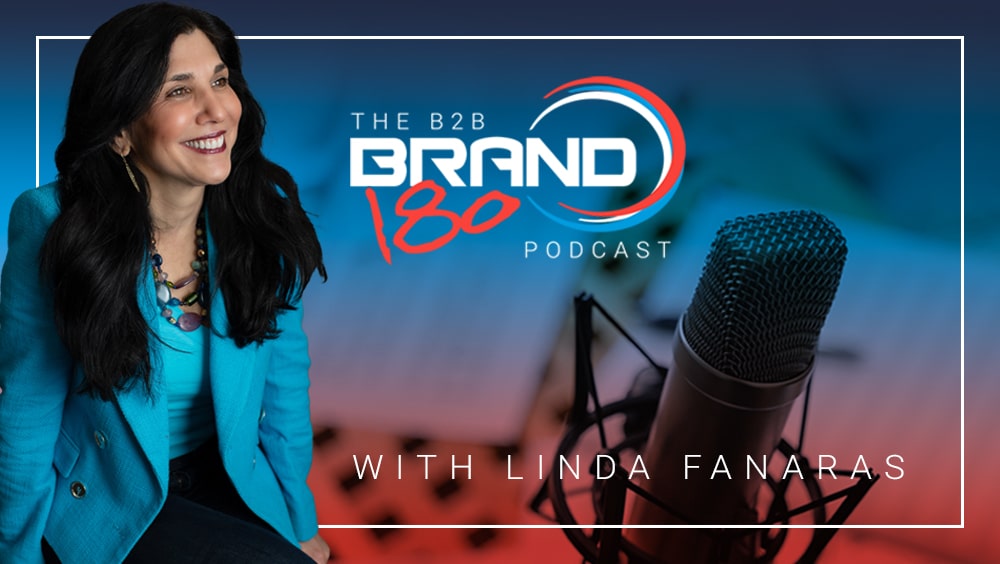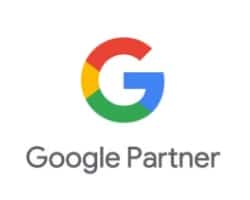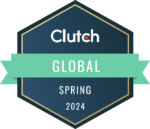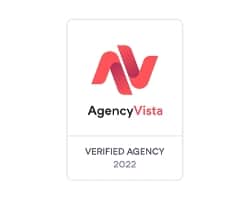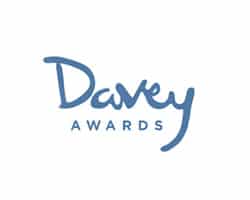In this episode of B2B Brand180, Linda interviews Alexander De Ridder, a renowned AI innovator, CTO, SEO expert, and the co-founder of Ink. As a pioneer in Natural Language Optimization models and the creator of a patented AI method that demystifies Google’s content preferences, Alexander offers a wealth of knowledge. The conversation dives into the future of SEO and content marketing, particularly the role of AI in shaping these fields.
Alexander describes how B2B brands can take advantage of AI and natural language optimization to craft compelling content strategies, emphasizing the significance of trust, engagement, and brand authority. He also introduces the concept of content hubs.
Transitioning from Web 2.0 to Web 3.0, Alexander explores the potential challenges and strategies for B2B brands. AI has a capacity to inundate the internet with generic content and Alexander anticipates a move towards a more interactive, user-focused web.
This episode is an essential listen for B2B marketers aiming to future-proof their brands.
Thanks for listening to the B2B BRAND180 Strategy podcast with Linda Fanaras, CEO/Strategist at Millennium Agency.
Follow Alexander’s at LinkedIn and visit his company website Ink here.
You can follow Linda at: https://www.linkedin.com/in/lindafanaras/
and Millennium agency at https://www.linkedin.com/company/millagency/.
Linda Fanaras:
Hi, my name is Linda Fanaras, host of B2B Brand180 and CEO of Millennium Agency. If you want to transform your B2B marketing into a powerhouse brand, then you may want to listen in and if you like what you heard today, click like, share or subscribe. Today we’re gonna talk about AI content marketing, and there isn’t a better person to invite on the show than Alexander De Ridder, Ink Co-founder and CTO, a content strategist and owner of Natural Language Optimization model AI. Alexander invented a patented AI to reverse engineer what Google is looking for in content and made it free for all the writers in desktop software. He pioneered the movement of Natural Language Optimization. So welcome Alexander to the B2B Brand180 podcast. Thanks for joining me today.
Alexander De Ridder: 0
Glad to be here.
Linda Fanaras:
Excellent. So, tell us a little bit about yourself. Take a couple minutes and do that, and then we’ll get started.
Alexander De Ridder:
Yeah. Thank you. So, I was born in Baruch, Belgium. Best described as like, real world Disney. Disney Park. the city dates back to like a thousand years ago. And what I think is super cool there is you can go to the city hall and they still have archives from when the mayor met with the guilds like a thousand years ago. And you can see what they were discussing and debating and, you know, the politics of the day. I moved to United States in 2006. After studying computer science in Belgium I had the opportunity to work with a lot of great marketing companies. And work in the field of machine learning since 2008 as well. I saw that neural networks were coming around and making a lot of my ML work redundant and predicted the impact it was going to have on how search engines treat content and rate quality of content. We built an SEO agency around that. EDGY Labs, very successful enterprise oriented SEO agency. We have clients like toyota.com that we grew their SEO by by 12 million visitors per month in in the last six, seven years. And and have had a wildly successful run in November, 2021. So just about 16 months ago. We sold edgy Labs to an a multinational company called digital Transformation Company called Compass. And we spun out the technology component AI that we had developed for content performance. And so at is the core idea. Is that we are able to reverse engineer the top performing content because Google already decided that’s the content people want to engage with. That’s the information people are looking for. They’re already putting that near the top. Same thing for Amazon. Same thing for social media, same thing for Instagram. Whatever you search. Platforms have an incentive to give you the best, most relevant, most engaging content near the top, cuz that’s how they make more ad money, right? Right. So, by taking that content and reverse engineering it with ai, we are able to extract insights on how to make that content. Perform. And then we had we had the really cool follow up idea which we also patented is when AI generation was coming around, we figured, you know, these insights are a perfect match, not just to say to a human, here’s how you improve your text, but what if you can give these insights to an AI that writes and say, here’s what you should keep in mind when you’re writing. Or this is what you should keep in mind when you are trying to do edits of this text and make it better. So you can think of it like a magic button you could press that would make your text hyper optimized. And the results are really astounding because in a large data study, we prove that optimized content with our technology is 520% more likely to hit first page of Google. So, hey. Who knew? Oh yeah. Giving people what they’re looking for actually works. What a radical idea. And and yes. So right now we are inc. For all.com is my is my main focus. And our mission is to help every business out there stand out from the noise.
Linda Fanaras:
I guess one thing that we know about is businesses do want to command a premium brand, and they do need precise and impeccable content, and you can’t just have a great idea, an amazing brand but you really need a strategy that works. So what would you say in today’s market are some effective strategies for creating amazing content using AI models and, and other factors?
Alexander De Ridder:
Yeah, so the market is changing really quickly and we are kind of in the twilight zone in between web two and web three right now. Mm-hmm. So I, there’s actually different ways I could answer that, Linda. Okay. I could, I could answer this question from a, what should you do right now if you want SEO growth right now? And I could also answer it, what should you do right now in preparation of web three? Mm-hmm. So I’ll try to do a little bit of both. If, if you have a Venn diagram and you have those two circles, what should you do for today and what should you do for tomorrow? In the intersection of those two will you will find two words. And those two words are trust and engagement. Trust is important because, I’ll use an analogy. If you needed to have a hard surgery done, you wouldn’t just go to any doctor that pops up on Google Maps and go to the first one, you would do some research. Alexander, you have a flare for the dramatic. My website is not comparable to something like that. Well, you know, it’s the future of your business. The website is a gateway to your business. A website that receives no visitors means that it’s a website that it cannot conf convert visitors, and therefore is a website that cannot make money. And if your website is not trusted by Google, you know, Google is the one who shopping around to find a trusted doctor. And so, building trust today. Helps you get results today. But building trust today is also going to make your entity on the web trusted for that topic in the future. So then the question is, how do you build trust if it’s so important? Well, let’s again use the analogy that we continue on this analogy, right? You might trust a certain doctor. If it comes highly recommended by people you trust, Traditionally that takes the form of like, I don’t know, back links, If websites you trust linked to another website, It, it basically is like my grandfather said, right? Tell me your five closest friends and I’ll tell you who you are. And so the same thing is true for your site. Who are you associated with online? Is it with ka casino’s live broadcast in texas.com? I don’t know. I made that up. I, I don’t know. There’s ka casinos in Texas as such, maybe by the border of Louisiana. But depending on who you’re associating with, who you link to and who links to you, it kind of tells Google what your sphere influence is. A, a famous example. Of that is when Google kind of shadow banned or blacklisted Infowars as a website, right? And so every, everyone that links to Infowars immediately had a impact on their authority. So it wasn’t, it wasn’t just Infowars that was affected, it was every website that linked to it. when you are associating yourself with domains that frequently have bad user experiences in the eyes of Google, or the engines that you’re working with you will be considered equivalent in trust to them. The brand authority is also built by, not just by links or your reputation or who you hang out with online. This also based on the things you actually publish. Fact checking is very important for, for your, everything you publish online. And it actually goes even beyond fact checking because, even my 14 year old could have guessed that is important to Google. It is also reflected in your experience and expertise. So like, as a thought exercise, let’s think about this for a moment. If the only thing that you contribute to the internet is general cliches and knowledge platitudes mm-hmm. Mm-hmm. And silly stories that are, off topic. Then it is hard for me to thank you or an expert. I will read that content and say, this is fluff. Right. And so much of the internet today is fluff. Correct. Businesses can c can build trust with search engines. By not, putting fluff out there, putting substantive, authoritative content. Mm-hmm. That adds information. Ads information. So this is a very interesting very interesting thing. Right. So Linda, let’s say you, on your podcast, you have many guests and your guests are talking about AI, and you have guests after guests telling you common stuff you’ve already heard five times over. Mm-hmm. Right? What will you think of that guest? Well, they didn’t add anything new, right? You’ll wonder if they’re really an expert. Mm-hmm. Right. And then you have Alexander on your podcast and he tells you really cool new stuff, right? Brings interesting angles and so forth. Like what is a person to think of that? This is a person that told me some interesting stuff, so I will trust this person. When they’re talking about that topic, they clearly gave you a deep thought, They clearly are speaking from experience and so forth, right? It’s actually quite easy for an algorithm. To discern if somebody is adding that new information. Right?
Linda Fanaras:
That’s
Alexander De Ridder:
interesting. And so you want to be associated with the idea of an expert in Google and other platform’s, eyes. And when you do that, speak from experience, speak from your expertise. And I’m not saying go and bore your audience to death with technical terms. I’m saying add something that is relevant to the topic that your audience will perceive as authoritative because you know this, because you say this, I will tend to trust you. Search engines work in a very similar way, and remember how we said I was going to try and answer your question from like Yeah. The present and the future. This Venn diagram of trust in the middle. The way that will benefit you today is that Google has an algorithm or principle called expertise expertise, experience, authority and trust, or E E A T I may have flipped the two E’s around, but they’re the two E’s, right? and it is going to boost your performance today significantly. And tomorrow your brand will already be associated with what is called topical authority. Whatever you talk about a lot, you become an authority on that topic. Now, this is an important concept to understand. I see a lot of brands fall in this wrap. I have adhd, I’m a generalist. I love to talk about philosophy and like deep questions, but then also about AI and then about marketing, and then about raising kids and, and I love to talk about everything. One of the things I hate the most about the internet today, Is that a pigeon holds me so much into a certain narrow area of expertise because I am so much more. Unfortunately, it requires a ton of self-discipline as a brand to stick to your authority, and you have to. But when you do that in that Venn diagram of the future, your brand will become synonymous and authoritative for a certain topic. And let’s do a thought exercise. If you needed to book a hotel tonight, what comes to mind? Quick
Linda Fanaras:
Could be Hyatt. Marriott. Great.
Alexander De Ridder:
Great. And if you wanted to book that hotel, what website would you go to? Go ahead. Expedia. There you go. Like I can ask different people, And they’re going to give me similar answers. May, maybe some people will say booking.com, maybe some people mm-hmm. Will say Expedia, And. What you are just demonstrating is called topical authority. When it comes to a certain hotel they have built authority and trust with with you, and when it comes to the website to bog the hotel, they have become synonymous in your mind with that particular thing. Your job as a brand and the topic of trust is to become the authority. Whether you sell ice cream in your neighborhood, Or you do heart surgery or you sell hotels, what is the first word that comes to people’s mind when they think of that topic in your context? if it is not your brand, you have work to do. Right. And so one of the ways that you can do that today, right? Obviously already covered some really useful things mm-hmm. That you should put, you should always fact check your information. You should make sure that you That you stick to one topic and don’t your, your topics are not all over the place and you need to make sure that you add interesting stuff that comes from experience and expertise that is not just generic content. These are practical tips you can take home and start working with today. There is there’s one other thing you can do today that works really well and that is something called content hubs. And when you, when you create a content hub on your site, you kind of force yourself into folder thinking, organizing your drive. Mm-hmm. It’s like cleaning your house. Nobody loves it. Mm-hmm. Right. But if your, if your hard drive or your Google Drive or Dropbox or whatnot is organized, then nobody in the team needs to ask, Hey Linda, where’s that file stored again? Right. Correct. It, it forces you to think in terms of structure. Mm-hmm. Because a subfolder and a parent folder cannot switch in order. There’s a logical structure why the parent folder contains different children as their folder. There’s a reason why the children and the parents don’t swap. It’s because one comes after the other. You know what it is called to search engines? It’s called the semantic web. It’s a web of meaning. It’s a web that makes sense, right? So when you create a content hub on your site, you’re basically creating a folder structure that is logical and that Google can interpret. And as it browses and crawls deeper and deeper, it says to itself, Hey, this website makes sense. And it crawls it and it makes sense. So how can you create content hubs? Well, you pick one topic that is extremely relevant for your audience. You do exhaustive keyword research, and with that, I mean you find every possible way that people can search for this topic. Questions about this topic, background information about this topic, but only this topic, right? And then you cluster them together with keyword clustering. And what that does is it groups all the similar searches together. So don’t create five articles about one topic. You know what that looks like, like Google. You know this, this guy at a party who cannot stop talking about his breakup. Right? Right. And like every conversation is about his breakup. If, if you have like five articles or five experiences as a search engine with a website, and they’re all talking about that one topic, You become boring, you become confusing. Like, what is this person really about? Is all they’re gonna talk about is this. You only want one piece of content on your site for one search intent, keyword, clustering groups, all the similar keywords together, so you don’t look like the, like the boring guy at a party. Mm-hmm. Mm-hmm. Right. Once you do that, you create that folder structure on your site in what’s called the content hub, and you create. Organized content exhaustive about a topic. See, this is one more way you build trust, Linda, if your body of work reflects, speaks to your to your breadth of knowledge, right? So when you cover a topic in depth, that also tells Google, Linda knows what she’s talking about. So, this is some of the things you can do to build trust. And I, I have to point out something else. Your trust as an author is the same thing as your trust as a domain. What you write about on social media, what websites you author and put your name under, and, and you are published under so-and-so. Site directly plays a role into how Google perceives you as trustworthy. So be careful who you associate with online. Be careful where you are seen with what crowd you hang out with. Be careful what you talk about because you might just get what you want. Mm-hmm.
Linda Fanaras:
Right. So interesting. Yeah. It’s a lot of great points that you brought up today, and I think, you know, SEO and AI is a little vague in most people’s mind, but just SEO in general is confusing and can be confusing, and there’s so many factors around that. I do have another question though relating to how some of the AI models like Burt and G P T three actually help, like how do they actually help search engines better understand the intent behind, you know, queries and website content?
Alexander De Ridder:
here we’re gonna get into some of the interesting stuff. So if you’ve been listening and you thought this podcast was interesting, Well, this is the actual interesting part and the cool stuff but now we get to talk about the future. And so, I would pull out my citizen card for the future because I’m a citizen of it. Permanent resident green card in the future. Okay. The first thing that users need to understand about all this AI writing stuff and content is that people are only looking as far as their nose. Mm-hmm. They’re not looking beyond it yet. There is a secondary and tertiary impact on the economy, on the web and how everything is going to shape out and how everything’s gonna change as a result of it. Let’s just talk about the nose for a moment and then we can look beyond the nose. AI creating a lot of content. Well, let’s, let’s pedal back even a bit more. Let’s make some, let’s make some statements. Okay. AI can probably write better than you can. You can steer it to include information that you think should be included. Mm-hmm. So it does not necessarily have your expertise, but in terms of being a good writer, knowing how to use paragraphs and not, and not needing a spelling and grammar checker, and translating to Japanese like probably better than you, it can compose ridiculously well. How you steer it is up to you. Like, for example, you can give it an outline with some talking points and it is going to write your thoughts, your outline, your talking points, really darn well. That’s phenomenal, right? Now I highly encourage everyone to not waste time with things that you shouldn’t waste time on. Right. So, when I was in school, they told me to memorize everything and I was not allowed a calculator. Now my kids have a cheat sheet formula list for their math test where they can look up all the formulas. Mm-hmm. And they have a calculator. Mm-hmm. Why? Because the world has changed. A calculator lives in our pocket. We have it with us all day, so why wouldn’t we learn to use that? So same thing will be true for ai. Schools need to find ways to engage students. And, and measure their progress in a way that they know how to use AI in real life, otherwise they’re gonna fall behind in the marketplace. And and you know, there’s a Twilight zone right now mm-hmm. In between zone where some students can get really high grades by using AI and kind of hide it. But that’s kind of like cheating because that was not the intent of the education. Right. Right. Instead, schools need to. Embrace the change and find new ways to grade students. For example, instead of grading them on memorization, grade them on their skill of information retrieval, logical composition and fact checking and proofreading and, and, and critical thinking because a lot of what AI puts out may not be right. So you need to develop the spider sense mm-hmm. Skill. Mm-hmm. Of being able to say, now this AI answer is not what I was looking for. So ultimately, whatever you produce with ai, you have to own it. And it goes back to the trust conversation, So go ahead and use AI but own it. Don’t just put it out there and say, you know, right. There was the song wasn’t me, I was older. Right, right. Google caught me red-handed wasn’t me. Somebody needs to make a parody, the fake parody. Absolutely. Going back to, to the content, so the first, the first thing everyone listening should realize is if you’re not using writing, With ai like Inc. For all.com or chat G P t, you are missing out. Mm-hmm. You are actually honestly wasting your time at the job and you’re wasting your company’s time because it is so darn good. It is a tool. It’s like trying to cut your lawn with a scissor. Right? Right. Why would you do that? Sure, you can, and I’m sure the lawn would look perfectly. Perfectly beautiful. If you ever finish your lawn, you can get to start over on the other side because by that time it’s gonna be like two feet tall grass. And so at some point, use the, use the lawn cutting machine like please. So this is number one. Number two, this has an impact on the internet. The content supply and demand curves. So in economy, that’s how we determine the value of stuff, right? If there’s an oversupply, prices come down. If demand is very high, then prices go up. So these two lines work together. And in the content economy of the internet, there’s only so much real estate that can go on the first page of Google. There’s only so many products that be on the first page of Amazon when people search for something. So that top space is very competitive. And when you see an oversupply of content on the internet, every topic instead of a hundred articles now have a thousand articles. Right? That means the competition just 10 x. And so you need to get your game on when it comes to content performance, And so that’s what we do@incforall.com. We help people win at that. Game. So the gap between an exponential content supply and a linear content demand, we call that the content performance gap, but that gap is increasing exponentially. Mm-hmm. So that means that you need to really get your game on when it comes to the content performance and giving people exactly what they want and exactly that. Now, the, that gap. Will increase to an extent. There is something out there, Linda called the dead internet theory. I think it’s it’s a bit conspiratorial. I don’t, I don’t believe in that. But every conspiracy has like a kernel of truth. Mm-hmm. And a grain of truth in it that makes people go, huh. And then they end up believing the conspiracy. Right. The grain of truth in a dead internet theory. Is that AI can create so much content so quickly that ultimately it’s like the pipes of your home that get clogged and, and it’s hard for you to know what to believe anymore, who to trust anymore, and what was written by humans or with human effort or collaboration. Mm-hmm. And will was not entire social media accounts can be created with ai. So at some point, You’re browsing the internet, but maybe the only thing you’re reading is generated content. And that’s a dead internet. Because it means that it means that your voice you know, the brand 180 podcast may be drowned out. Oh, correct. Yeah. And, and, and when your voice is drowned out, well, that’s a problem for democracy, isn’t it? It’s a problem for human expression, because if you do not. If you have the freedom of speech, but literally nobody in the world can hear you because everyone is shouting so loud around you. Have you heard, have you heard, have you seen this? Like a kid where the sticks says, fingers in his ears. Mm-hmm. And goes, la la la, la la. Mm-hmm. Right? Yeah. That’s what it looks like. It’s like, I can’t hear you. I don’t care what you’re saying. That’s kind of the, the grain of truth in the dead internet theory. And so, So just to say that your trust as a brand is what is gonna really matter at such a time, because search engines will struggle with this, and that’s their entire existential crisis, is how do we continue to serve people. Trusted quality content when we have to index a thousand times more content when we have to judge that. And so the obvious shortcut, this is why, you know this is 100% going to happen. The obvious shortcut is I’m gonna look at how much I trust you and then, and then if I trust you, I’m going to give you a chance. And if I don’t trust you, and you look like you’re just putting generic content out there, written only with ai, but not with your expertise. Mm-hmm. I’m going to ignore you because you’re just spamming. You’re just spamming, right? And that, and that brings it to like, the final state. we’re entering a cycle right now, today as 2023. Go back 20 years. The dynamic web web two is just starting to emerge. But unlike 20 years ago, Technology and trends move a hundred times faster. So Facebook, WordPress, so much of what you use today was not possible. In 2003, it was unthinkable, and today, web two and dynamic sites have completely changed the web. What will happen with the internet? Is that it will get so full with generic content. Mm-hmm. That generic content won’t matter anymore. Instead, what people will expect from the internet is the interactive web. The dynamic web will be it or replaced by the interactive web. This the real web three, and it’s not a pipe dream. It’s already starting to happen. What does the web three look like? Web three looks like this. Let’s say I’ve got, I’m an Android person, I’ve had iPhones in the past, but I’m gonna go with iPhone because majority of business people in America have iPhones. Let’s say you have an iPhone that’s like four years old and you want to get a new iPhone, you go to the verge.com. And you see the article about the new iPhone and you’re browsing it to read if it’s any good. You wanna know what a new cool features are, but the article only compares it to the last year’s model. That’s not what I want. I want to know how it compares to my model from four or five years ago. That’s what I want. Now, I could go and hit the search button, look for an article from four or five years ago. And see how that phone that I own compared to la, the model before year before it, and then I can have two pages side by side and I can open a notepad and I can start taking notes and compare the two articles and I can make for my own judgment on how the two compare. Worse yet, I can go on the comparison on multiple different websites that answer. When you put it in those in that way. When you put it in that way you’ll realize how. Incredibly stupid. The current internet is, why would that, why would anybody think that’s a good user experience? Mm-hmm. I am wasting my time. I want to know how my iPhone compares to the new one. That’s all. Why do I have to browse five, six pages for that? It makes no sense. right. So the generative technology we have with AI today, Is able to read and understand every page on your website. It is able to understand what it’s about and is able to recompose and re and reconstruct the exact thing you’re looking for in one take. You visit the page and it will generate. The answer you’re looking for by reading all the available material and giving you the answer, you really want it without needing to browse multiple pages or websites. How great is such a web? So here’s, here’s a teaser, We’re working on something big in that space to help businesses get ready for that web three. Mm-hmm. It’s very early days. I can’t reveal it just yet. But if that sounded cool and interesting, and you don’t wanna miss the boat on that, follow me somewhere online so you’ll find out, Go follow my LinkedIn Alexander de Ritter, go and join our Facebook group@incforall.com, whatnot. You’ll be the first to find out. Here’s he, here’s a prediction In the next four years, 60% of SEO traffic. To web pages on your site will be dis displaced and replaced with interactive web. Mm-hmm. So if you have a million visitors to your site, you’re going to get 400,000 visitors to your site instead. Four years from now that that’s 60% of traffic Will not be gone. They will not stop caring to buy your product. They will not stop caring to find out your information, but they will consume it differently through assistance like Siri, Alexa, Google Assistant, and so, and Cortana, And search will look very different and it will, it will choose. It’ll work very much like you said that we did that thought exercise. Mm-hmm. Where would you buy a, a hotel room from? Right. Right. The first thing that comes to your mind, that’s the brand that’s gonna make the money. Mm-hmm. So if you want to get ready, I told you about that Venn diagram, now, yeah. Really, believe me, the best thing you can do today to prepare for that future is make sure that you become the brand. That search engines and users trust to answer them for that particular question. You do that today, you’ll be in the best position to be ready for what’s coming very, very quickly. And in the next four years, my prediction about web traffic will come true. You will, you will lose at least 60% of your traffic to webpages. And we already see it happening in some sense. So you, it’s not hard for someone to hear this, and believe me, because Google has this thing called zero click search. Mm-hmm. Where they show feature snippets or little widgets and they don’t send the traffic to your page. And the basic idea, Linda, is this, if the web gets so filled with generic content, why would a search engine. Ever give up that traffic. Right? There’s no point. They can generate it too. The only only reason they would come to your site is because you have something to offer that they can’t, a better experience, more trust, or a kind of data that nobody has. Mm-hmm. Right. So actually it’s gonna be a golden age for on the grand journalism as well. Because that’s fresh data. And that’s stuff that gen AI cannot make up. You have to have eyes and ears on the ground. So I’m excited what it can do for media, but that’s another day. All right. That was
Linda Fanaras:
kind of a long answer. Yeah, no, no, that’s great. So I guess for our audience to, I mean, we talked a lot about content, we talked a lot about seo, we talked about trust. If you were to give aside from, from that point, Trust. What is another takeaway that you’d give to the audience in just maybe a few words or a few
Alexander De Ridder:
sentences? Yeah, I, I’ll say that this is a very old piece of advice, but I think it becomes very important own. Your list. Own your list. If you’re not capturing your visitor’s email addresses, if you’re not talking to them, then you’re missing out because the noise out there in the world can come so become so big. if you have an engaged audience that you can reach directly and talk to directly, that is extremely valuable going in the future. Even if search engines dramatically, change of websites dramatically change, but you own an audience, You can directly speak to people that will matter. For the foreseeable future, humans are doing the purchasing online notis. So while AIs can help you with content consumption and creation, they can’t go and buy stuff or make money for you for the foreseeable future. I mean that this is gonna change at some point, but not right away. So humans is what you need to build relationships with. So if you are putting out social media content and not asking people to sign up for your list, then just stop what you’re doing. You don’t own them. The social media agencies or companies are going to. Dilute your, your, your, your audience with their ads and utter feeds and whatever pays them money. You don’t own your audience unless you own your audience, and Right. The best way to do that is with how would you meet a friend and stay in touch, right? You’d ask for their phone number and email name, phone number, email. That’s what you need. If you can stay in touch and then, then don’t, and then respect them like friends. Don’t spam them. Only bother them when you have interesting things to say. And build a relationship with people for the foreseeable future. People are carrying the purse and while they carry the purse, that’s where your economy for your business will be.
Linda Fanaras:
That’s fantastic. Well, that was, that was great, Alexander. You provided some fantastic insight on AI and SEO and content strategy. I’m sure our audience has enjoyed it today. So, again, thank you for listening in today and on behalf of B2B Brand 180. Thank you Alexander for all of your, insights and To get in touch with Alexander Visit Inc. For All, and again, thank you for tuning in to B2B Brand 180, and we hope you found the insights and strategies shared today valuable and I, again, I’m Linda Fanaras, host of B2B Brand 180 and c e o of Millennium Agency, just to help our channel grow and educate more B2B leaders on brand strategy. Feel free to like, share, or subscribe, and thanks again for listening. And until next time, happy marketing.





